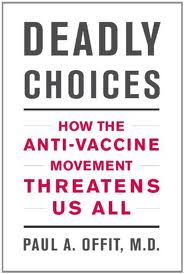February 7th, 2011 by Toni Brayer, M.D. in Health Tips, News
No Comments »

 The Canadian Medical Association Journal (CMAJ) has published a new primer designed to help physicians when they counsel pregnant women. They note that sex during pregnancy is normal and is generally considered safe. The authors point out that there are very few proven contraindications and risks regarding intercourse in normal pregnancy.
The Canadian Medical Association Journal (CMAJ) has published a new primer designed to help physicians when they counsel pregnant women. They note that sex during pregnancy is normal and is generally considered safe. The authors point out that there are very few proven contraindications and risks regarding intercourse in normal pregnancy.
Pregnant women and their partners are often afraid to have sex. Men may think they are “invading” the home of the fetus and could actually harm the baby. In fact, the fetus is quite safe, ensconced in the uterus (womb) and the cervix (opening of the uterus) is closed in normal pregnancy. The penis has no contact with the fetus or the uterus during normal intercourse, no matter what the position.
When is intercourse considered risky? Only for women who are at high risk for preterm labor and for those with placenta previa because there is increased risk for hemorrhage. Even women who have had preterm labor may safely have sex unless they have cervical incompetence or a lower genital tract infection.
Women who are under the care of an obstetrician should know if they have any of these risks. The vast majority of women should be reassured that sex during pregnancy is safe for mom and baby.
*This blog post was originally published at EverythingHealth*
January 31st, 2011 by Bryan Vartabedian, M.D. in Book Reviews, Opinion
No Comments »

 A friend suggested she was tired of hearing about vaccines. Her comment and our subsequent conversation seemed to reflect an important shift in parent sentiment: The conversation about vaccines is beginning to get somewhere.
A friend suggested she was tired of hearing about vaccines. Her comment and our subsequent conversation seemed to reflect an important shift in parent sentiment: The conversation about vaccines is beginning to get somewhere.
While much of this was born of the mainstream media’s newfound realization that the vaccine-autism connection was cooked, some of this is due to the tireless work of those like the Children’s Hospital of Philedelphia’s Dr. Paul Offit who get the story right.
As part of his passionate agenda to expose vaccine truths, he’s published “Deadly Choices: How the Anti-vaccine Movement Threatens Us All” (Basic Books, 2011). For those looking to understand the origins of anti-vaccine sentiment, read this book.
What struck me is the deep history behind the anti-vaccine movement. From Jenner’s smallpox fix to modern-day MMR struggles, Offit draws fascinating corollaries surrounding immunization that seem to defy the generations. Vaccine resistance was not born of Andrew Wakefield, but broader concerns rooted in religion, individual liberty, fear and propaganda. “Deadly Choices” puts the anti-vaccine movement in a historic sequence that reads like good suspense. I couldn’t put it down. Read more »
*This blog post was originally published at 33 Charts*
January 28th, 2011 by DrCharles in Health Tips, Research
1 Comment »

 “This job is killing me” is not a statement of jest. It is a desperate plea of outright sincerity.
“This job is killing me” is not a statement of jest. It is a desperate plea of outright sincerity.
Stress, anxiety, depression — all have been associated with an increased risk of cardiovascular disease and mortality. But can interventions to help people cope with stress positively affect longevity and decrease risk of dying? The results of a new study in the Archives of Internal Medicine would imply the answer is an encouraging “yes.”
Constructively dealing with stress is easier said than done, but it would seem logical that if we can reduce our psychological and social stressors we might live longer and delay the inevitable wear and tear on our vessels. This study proved that one such intervention, cognitive behavioral therapy (CBT) for patients who suffered a first heart attack, lowered the risk of fatal and nonfatal recurrent cardiovascular disease events by 41 percent over eight years. Nonfatal heart attacks were almost cut in half. Excitement may be dampened by the fact that all-cause mortality did not statistically differ between the intervention and control groups, but did trend towards an improvement in the eight years of follow up.
Definitely less suffering. Maybe less deaths.
The authors state that psychosocial stressors have been shown to account for an astounding 30 percent of the attributable risk of having a heart attack. Chronic stressors include low socioeconomic status, low social support, marital problems, and work distress. Emotional factors also correlated with cardiovascular disease include major depression, hostility, anger, and anxiety. Read more »
*This blog post was originally published at The Examining Room of Dr. Charles*
January 26th, 2011 by Mark Crislip, M.D. in Opinion, Research
1 Comment »

It always somewhat surprises me how some interventions never seem to die. One therapy that refuses to be put to rest, or even to be clarified, is the use of cranberry juice for urinary tract infections (UTIs). PubMed references go back to 1962, and there are over 100 references. Firm conclusions are still lacking.
There is a reasonable, but incomplete, basic science behind the use of the cranberry juice for UTIs. E. coli , the most common cause of UTIs, causes infection in the bladder by binding to the uroepithelial cells. To do this, they make fimbriae, proteinaceous fibers on the bacterial cell wall. Fimbriae are adhesins that attach to specific sugar based receptors on uroepithelial cells. Think Velcro. Being able to stick to cells is an important virulence factor for bacteria, but not a critical one — it is not the sine qua non of bladder infections.
Are all E. coli causing UTIs fimbriated? No. It is the minority of E. coli that cause UTI that have fimbria, and the presence of fimbriae may be more important for the development of pyelonephritis (kidney infection) than cystitis (bladder infection). Read more »
*This blog post was originally published at Science-Based Medicine*
January 24th, 2011 by Davis Liu, M.D. in Better Health Network, Opinion
No Comments »

 A recent post on the Health Affairs blog proclaimed “The End of Internal Medicine As We Know It.” What the post is really asking about is the future of primary care in the world of healthcare reform and the creation of accountable care organizations (ACOs). While doctors should be naturally concerned about change, I don’t completely agree with this article.
A recent post on the Health Affairs blog proclaimed “The End of Internal Medicine As We Know It.” What the post is really asking about is the future of primary care in the world of healthcare reform and the creation of accountable care organizations (ACOs). While doctors should be naturally concerned about change, I don’t completely agree with this article.
ACOs are organizations that are integrated and accountable for the health and well-being of a patient and also have joint responsibilities on how to thoughtfully use a patient’s or employer’s health insurance premium, something that is sorely lacking in the current health care structure. These were recently created and defined in the healthcare reform bill.
Yet the author seems to suggest that this is a step backwards:
Modern industry abandoned command-and-control style vertical integration decades ago in favor of flatter, more nimble institutions.
Not true. Successful organizations are ones that are tightly integrated, like Apple, FedEx, Wal-Mart, and Disney.
The author talks briefly about how Europe in general does better than the U.S. in terms of outcomes and costs and has a decentralized system. All true. However, contrasting Europe and America isn’t relevant. After all, who isn’t still using the metric system? Therefore solutions found outside the U.S. probably aren’t applicable due to a variety of reasons. Americans like to do things our way.
What I do agree on is that doctors need to be part of the solution and ensure that the disasters of decades ago — like labeling primary care doctors (internists and family physicians) as “gatekeepers” rather than what we really do — never happen. Read more »
*This blog post was originally published at Saving Money and Surviving the Healthcare Crisis*
The Canadian Medical Association Journal (CMAJ) has published a new primer designed to help physicians when they counsel pregnant women. They note that sex during pregnancy is normal and is generally considered safe. The authors point out that there are very few proven contraindications and risks regarding intercourse in normal pregnancy.









 A recent post on the Health Affairs blog proclaimed “
A recent post on the Health Affairs blog proclaimed “









